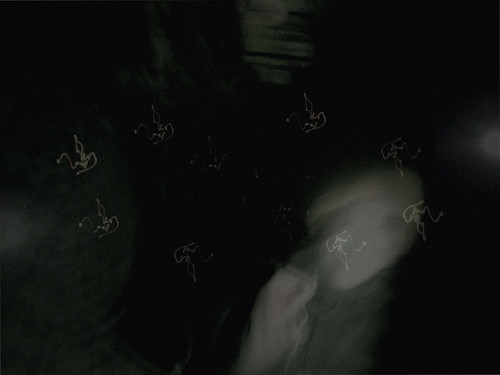
He had a dream last night that he was flying in the passenger seat in an open cockpit plane. A young woman shared the seat with him. He sat at th edge of the seat, leaning back against her chest, while she clutched him and put her face before his, both of them staring forward. All he could see was a dim sky ahead of him, and some errant locks of hair from the girl's head behind him. Just as it was starting to feel really exhilirating, he could hear the alarm going, and so ended his trip back in time.
*******
A history of Transylvania...the book could never be written, not in any semi-objective or official context. It would only be tainted with sentimentalism, bias and, prejudices, depending on who writes the book, where they come from, what their interests might be, but perhaps more importantly, when they wrote it. All that can be measured is how much investment in that book each writer has. But perspectives change over time, so what one person thinks in one era might be totally aligned with thoughts of the future, but terribly out of place in their own time.
Like any region, it had been inhabited by numerous peoples. Each little subsection of Transylvania could, in all possibility, be claimed by at least a few groups, supposing all of these groups still existed, and had a forum to communicate. But such is not the case, and beyond that, what constitutes a "people" remains unclear. What became of the Dacians, who settled there before the Romans? There are also the Huns, who spread their genes into the Magyars (or Hungarians as the English call them), yet one cannot say that Transylvania is an Asiatic place. There are Germans who inhabit whole communities, and then there are the Csángó, who, in popular wisdom, "have German blood, speak Hungarian, and dress like Romanians." The Szekely, who live a traditional life beyond towns and cities, have similarly intertwined roots and customs. There are the Macedonians, and Greeks, who are now referred to in obscure linguistic journals as Aromanians. Finally, we have the Ruthenians, so few in number, who can only be some combination of Romanian and Russian, with perhaps some Serb in there as well? Who knows, really.
By the turn of the 19th century, where our story more or less begins, Transylvania had become a strong and independent slice of Austro-Hungary, known for its localized justice system, and the relative prosperity and respectability of its noble classes. The several provinces that made up Transylvania proper weren't exactly typical places, but they were not altogether foreign in the larger context of the Empire. In that period, Braham Stoker would steal an old legend about bats, and with little thought, picked a name from bloodier times, and thus came about the ridiculous Dracula story. Vlad the Impaler had nothing to do with bats. He did have a lot to do with impaling, however. There are tales of him having impaled 30,000 victims in one go, after a battle. No woman, child or breathing soul was spared in the vicinity of victory.
Blood has always flown by violence in Transylvania, but not a lot of it was visible, not in an en masse fashion. Under Communsim, for instance, most murder was committed behind closed doors, usually by the hand of a well trained, hardened officer of the security services. By and large, the region lived in peace and prosperity. But there was no lack of cruelty when blows were stricken. The Turks committed atrocities that killed thousands in days. One cannot forget the Jews, who took the brunt of their fate towards the end of the war, but took it no less harder than any of Hitler's enemies. The number of battles and clashes that took place there are almost too many to count. To tally every incident involving mass slaughter or acts of war would only confirm the obvious.
The enduring conflict, in modern times, concerned until recently only two groups of people. Hungarians and Romanians both held a special regard for "the place beyond the forest", both claiming it homeland, and neither relenting at any point.

1 comment:
I went back looking for this, after our discussion about THE BOOK last night - I think you're on to a fascinating (un-)revisionist history, here!
Post a Comment